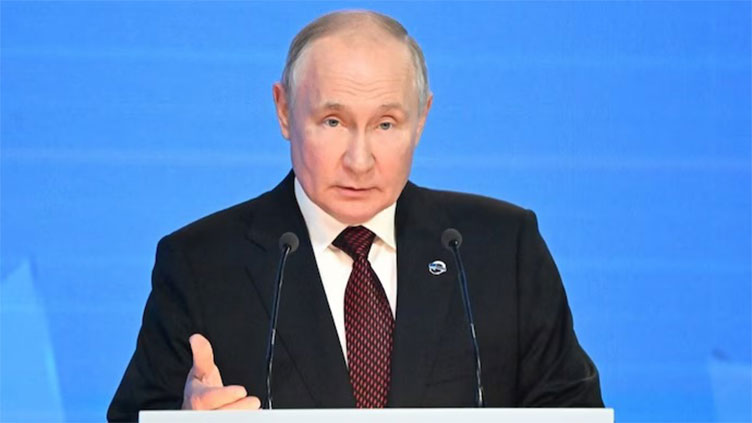Putin blames failure of US policy for Mideast conflict, Russia says talking to both sides

World
Putin said the violence between Israel and the Palestinians showed the U.S. policy had failed.
MOSCOW (Reuters) - Russian President Vladimir Putin on Tuesday said the explosion of violence between Israel and the Palestinians showed the U.S. policy had failed in the Middle East and taken no account of the needs of the Palestinians.
Putin's spokesperson, Dmitry Peskov, said the Kremlin was in touch with both warring sides and would seek to play a role in resolving the conflict, but did not specify how. Peskov warned that the conflict risked spilling over into other regions.
Putin took the opportunity, during talks with visiting Iraqi Prime Minister Mohammed Shia Al-Sudani, to blame the sharp escalation on years of U.S. policy in the region.
"I think that many people will agree with me that this is a vivid example of the failure of United States policy in the Middle East," Putin said.
Putin said Washington had sought to "monopolise" efforts at forging peace, and accused it of failing to seek workable compromises. The United States, he said, had ignored the interests of Palestinians, including their need for their own independent Palestinian state.
He made no mention of Russia's own role in the Middle East peace process. Along with the United States, the United Nations and the European Union, it has since 2002 formed part of a "Quartet" of powers charged with helping to mediate.
Israel vowed to escalate its response to the attack by Iran-backed Hamas militants with a ground offensive, while U.S. President Joe Biden pledged support for Israel and issued a warning to anyone who might seek to take advantage of the situation.
Russia pressed on with diplomatic contacts.
A Kremlin statement said Putin and Turkish President Tayyip Erdogan deplored the "catastrophic rise in the deaths among civilians".
Russian Foreign Minister Sergei Lavrov called for a rapid cease fire in a conversation with his Iranian opposite number, Hossein Amir-Abdollahian.
Kremlin spokesperson Peskov said Moscow took part in all formats for diplomatic efforts despite limited progress.
"But nevertheless we intend to keep making efforts and play our role in terms of providing assistance to seek ways to a settlement," he said.
Since the latest crisis erupted, the Kremlin has sought to appear even-handed, underscoring its relations with both sides.
Moscow allegedly uses Iran-made drones in its war in Ukraine and has longstanding ties with the Palestinians, including Hamas, which sent a delegation to Moscow in March. But it also has "a lot in common" with Israel, including the fact that many Israelis are former Russian citizens, Peskov said.
In comments later reported by Russian news agencies, Peskov said the turmoil was "more than worrying. It has the potential to be dangerous by growing and spilling over from the current zone of the Arab-Israeli conflict."

